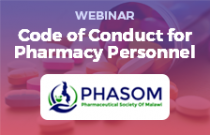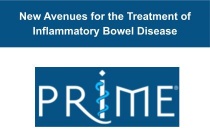Term Newborn Babies at Risk of Respiratory Distress (Hospital)
Sue Macdonald, Tracey Jones and Kelly Harvey
0.50 Hours
This session aims to test and consolidate knowledge and skills to enable the practitioner to provide high quality care to the neonate, encouraging an integrated and seamless team approach to care. It includes a number of case scenarios of babies with respiratory issues for the learner to consider and apply their knowledge to pra....
Term Newborn Babies at Risk of Jaundice
Stephanie Michaelides and Belinda Ackerman
1.00 Hours
This session will discuss the physiology and pathology of neonatal hyperbilirubinaemia by applying theory to practice using case scenarios.
Terminal Agitation Patient in a Care Home
Ruth Cecil
0.50 Hours
This session explores the key issues around the assessment and management of terminal agitation in a dying patient living in a care home. Using a scenario, it discusses how to assess and manage the needs of the patient, family, other residents and also those of the care home staff. This session was reviewed by Cassy Rowe-Haynes....
Shortness of Breath
David Ward
0.50 Hours
This session will briefly outline an approach to the hospitalised patient complaining of shortness of breath. It will identify important diagnoses and key investigations.
Variability of Lung Cancer Presentations
Santino Capocci
This session examines the variability of presentations of lung cancer, as well as those described in the NICE referral guidelines for suspected lung cancer (the '2-week wait' rules).
Importance of Good History
Veronica White
This session focuses on the importance of taking a good history when reviewing a patient with a cough.
Drugs that can Cause Breathlessness and Underlying Lung Disease
Elora Mukherjee
This session looks at drugs commonly associated with causing shortness of breath, the underlying pathogenisis of the pulmonary drug reaction and clinical manifestations.
Investigation and Management of Rarer Causes of Haemoptysis
Prina Ruparelia
This session discusses the investigation of rarer causes of haemoptysis. The results of investigations are shown and the subsequent management of these conditions is discussed.
Cough: Investigation and Management and BTS Guidelines
Salman Haider, Elspeth Potton and Veronica White
This session focuses on the causes of acute and chronic cough and describes the investigation and management of cough.
Arthritis: A Logical Approach
Professor Sebastian Magobotha
Causes, diagnosis, and treatment from an orthopedic view.
Cervical Cancer; The Crucial Role of Primary Health Care providers
Dr Susan Cheruiyot
Cervical cancer is the second most common cause of cancer death in women, after breast cancer. It is also one of the few preventable cancers, with the advent of vaccinations and the availability of screening methods to detect early cancer. There have been massive challenges in the uptake of these preventive strategies over th....
Approach to Cutaneous Neoplasms
Dr Alexander Diakakis
Primary physician's approach to skin cancer and the basic management there of
No Tobacco: Addiction and Advocacy
Miss Abena Otchere-Darko
Tobacco kills up to half of its users, a plant with leaves that have high levels of the addictive chemical nicotine. After harvesting, tobacco leaves are cured, aged, and processed in various ways. The resulting products may be smoked (in cigarettes, cigars, and pipes), applied to the gums (as dipping and chewing tobacco), or in....
Protection, Smoking and Use Features
Miss Abena Otchere-Darko
Tobacco kills up to half of its users, a plant with leaves that have high levels of the addictive chemical nicotine. After harvesting, tobacco leaves are cured, aged, and processed in various ways. The resulting products may be smoked (in cigarettes, cigars, and pipes), applied to the gums (as dipping and chewing tobacco), or in....
Code of Conduct for Pharmacy Personnel
Dr. Felix Khuluza
This session will highlight code of conduct for pharmacy professionals. It will dwell much on Malawi code of conduct with comparison of codes of conduct from various countries, e.g. England, Kenya, Ireland and South Africa.
Approach to Chest Pain
Dr Lin Jun-Xian
This session will highlight the differential diagnoses of chest pain. It will also cover a section on understanding the pathophysiology of chest pain. The session further provides a good overview of the approach to a patient with chest pain with a focus on key diagnoses not to miss.
Quenching the fire of GERD, quenching the ‘fire’ in the stomach
Dr. Adwoa Agyei-Nkansah
This webinar is designed to update healthcare professionals (HCPs) on the latest advancements in managing Peptic Ulcer Disease and Gastro Esophageal Reflux Disease (GERD). Learn about current trends in diagnosis and treatment, including emerging therapies. Plus, discover why Pariet is positioned as the leading oral proton pump i....
The Role of Neurology Care Teams in Caring for Patients With Multiple Myeloma Receiving Bispecific Antibodies
Ajai Chari, Luis Nicolas Gonzalez Castro, Brad Boyette, Ricardo Correa, Joyce M Knestrick
0.25 Hours
Neurology teams play a vital role in caring for patients with multiple myeloma (MM), including those receiving treatment with bispecific antibodies (bsAbs). In this on-demand video, led by an expert neurologist and MM specialist, you will learn to identify risk factors and recognize the signs and symptoms associated with neurolo....
On the Frontline: Emergency Medicine's Role in Managing Bispecific Antibody Events in Multiple Myeloma
Ajai Chari, Christopher Baugh, Brad Boyette, Ricardo Correa, and Joyce M Knestrick
0.25 Hours
Emergency medicine (EM) teams must be prepared to care for patients experiencing adverse events of cancer therapies, which is no small task. In this on-demand video, an expert EM physician and multiple myeloma (MM) specialist will provide an in-depth review of the latest novel therapy for MM -- bispecific antibodies (bsAbs). EM....
New Avenues for the Treatment of Inflammatory Bowel Disease
Dermot P. McGovern, David T. Rubin, Ricardo Correa, Abimbola Farinde, Kristi Kay Orbaugh
0.50 Hours
Join two expert faculty in this engaging evidence-based discussion focused on recent updates in the treatment of inflammatory bowel disease (IBD). View a custom whiteboard animation to gain a deeper understanding of the role of tumor necrosis factor (TNF) superfamily protein TNF-like 1A (TL1A) in this development of this disease....
Novel and Emerging Treatments for HR+/HER2- Breast Cancer
Sara A Hurvitz, Aditya Bardia, Douglas S Burgoyne, Kelly Valla, Mark A Rubin, Annette Sophin, Joyce M Knestrick
1.25 Hours
Incorporating biomarker testing is key to optimizing outcomes in HR+/HER2- breast cancer, especially in recurrent and hormone-refractory disease. Be sure your team is prepared to apply the latest evidence ranging from pearls for biomarker testing to considerations for appropriate treatment sequencing. Gain important insights....
Biomarkers in DLBCL: Current Implications for Diagnosis, Prognosis, and Treatment
Joshua Brody, Craig Portell, Stephanie Joyce, Michele B Kaufman, and Jason Welch
0.25 Hours
The molecular landscape for diffuse large B-cell lymphoma has become more intricate in recent years, highlighting unique genomic subtypes with implications ranging from diagnosis to prognosis to personalized treatment. Join expert DLBCL faculty as they review guideline recommendations and therapeutic implications for the biom....
Negotiating Consent for Treatment
Stephen Henderson
Consent for treatment is a legal requirement involving a detailed explanation of the diagnosis and treatment options. Practitioners must be able to negotiate consent according to the guidance issued by the General Dental Council.
























